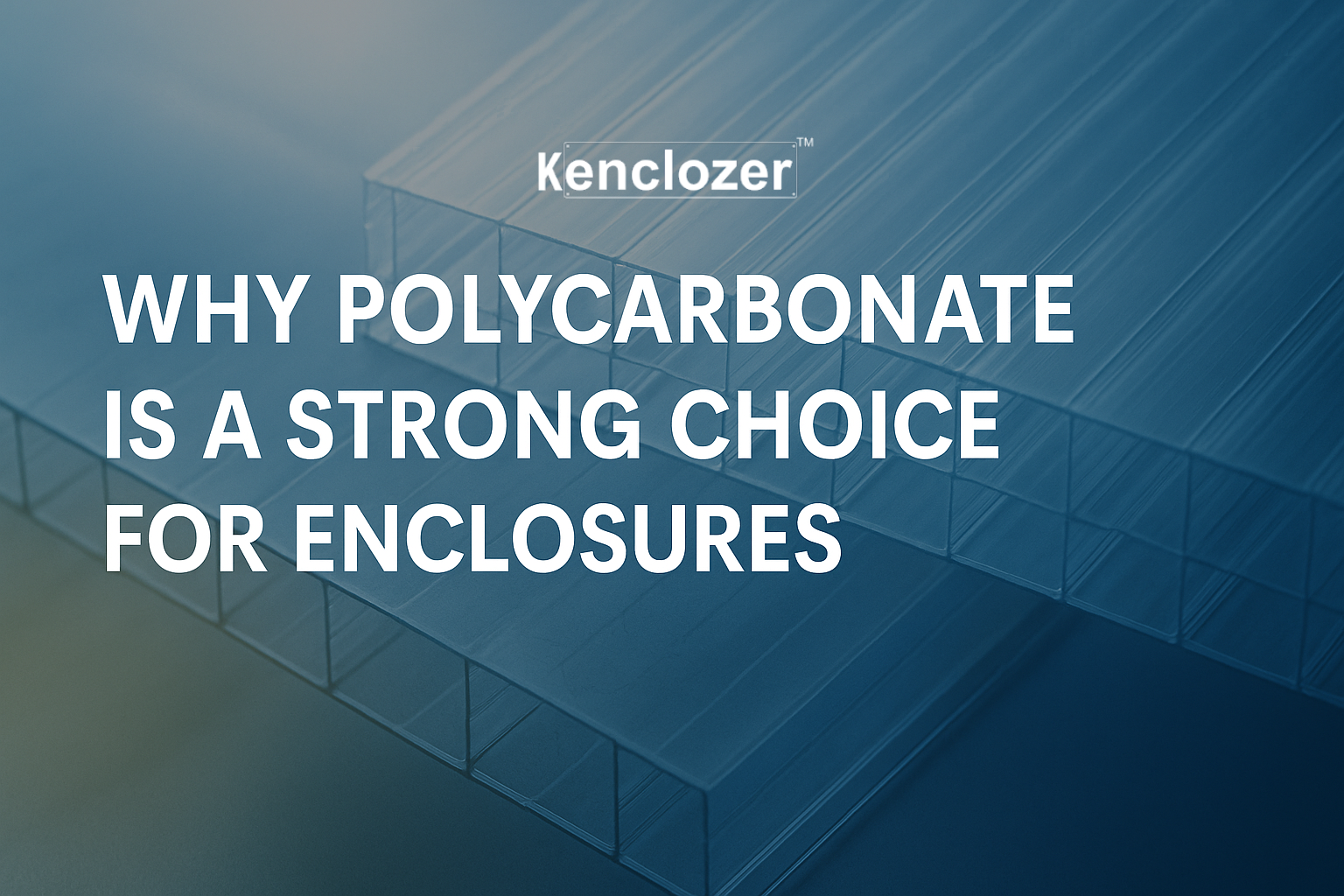Why Polycarbonate Is a Strong Choice for Enclosures

In cases where electrical and electronic components need superior protection, especially when the work is done at the outdoors or in an industrial set-up, then the quality and the durability of the enclosure is so important. Polycarbonate is one of the materials that have proven to be the most reliable and versatile materials to use as enclosures. So why should poly car be seen as a powerful option?
The paper will look at some of the major benefits of polycarbonate enclosure, its uses, its comparison with other material, how it offers lasting value and security.
What is Polycarbonate?
Polycarbonate is a unique type of thermoplastics polymers defined by them with a high resistance to mechanical impairments, light weight as well as transparency. It occurs in construction and electronic, automotive and aerospace industry.
When it comes to manufacturing the enclosures, polycarbonate has an optimal mixture of flexibility in design, durability in use (or environmental resistance) and strength.
Key Benefits of Polycarbonate Enclosures
- High Impact resistance: Polycarbonate is very hard to crack or shatter under heavy impact. This renders it suitable to be applied in the areas that have physical dangers such as in the industrial plants, transport, or the outdoors.
- UV Resistant and weatherproof: Polycarbonate resists UV rays, rain fall, dampness, and variations in temperatures. UV stabilised polycarbonate enclosures cannot fade away like other covers when exposed to the sun.
- Monitoring Transparency: The clear or translucent polycarbonate enclosures do not have the opaque metal or enclosed feel of parts being closed off as they can look inside the box without opening it, to monitor the displays, or indicator lights or meters.
- Corrosion-Free, Not Conductive: Polycarbonate is non-metallic, and, as such, it does not corrode, and it also offers very good electrical insulation. This is essential in the conditions that involve moisture or corrosive conditions.
- Easy to work and Lightweight: Enclosures made of polycarbonate are lighter and readily drilled, cut, or mounted, as compared to metal. This increases speed of installation and saves on weight of the structure in mobile of elevated applications.
- Thermal Resistance: They are able to operate in an expansive temperature range, normally -40°C to 120°C, and so they have safe and sound application at low and high temperatures.
- Long-Term Economically-Friendly Solution: Polycarbonate enclosures, although higher priced than plastics such as ABS, offer considerable longevity which requires very little maintenance over time. Hence, in the long term, a polycarbonate enclosure is less expensive.
Common Applications of Polycarbonate Enclosures
- Outdoor electrical panels and junction boxes
- Solar inverter and battery housing
- Industrial control systems
- Telecommunication equipment
- Marine and automotive enclosures
- Agriculture and greenhouse equipment
- Medical equipment casings
Comparison: Polycarbonate vs. Other Materials
| Feature | Polycarbonate | ABS | Metal (Steel/Aluminum) |
|---|---|---|---|
| Impact Resistance | Excellent | Moderate | Excellent |
| UV & Weather Resistance | Excellent (UV stabilized) | Poor to Moderate | Moderate (requires coating) |
| Electrical Insulation | Excellent | Excellent | Poor |
| Weight | Lightweight | Lightweight | Heavy |
| Transparency | Transparent options | Opaque | Opaque |
| Corrosion Resistance | High | High | Low (if uncoated) |
| Workability | Easy | Easy | Difficult |
| Cost | Moderate | Low | High |
FAQs
Conclusion
Polycarbonate has been proved to be an intelligent, powerful and future electrical and industrial enclosures material. Due to its capacity of resisting mechanical, environmental as well as electrical stresses, it is among the best solutions an engineer or installer may require as he or she considers safety, reliability and performance.
Polycarbonate enclosures will provide safeguarding against rain, dew, snow, humidity, dust, brine, windblown particles, chemicals, and other forms of pollution, which is abundant on or near the seashore.